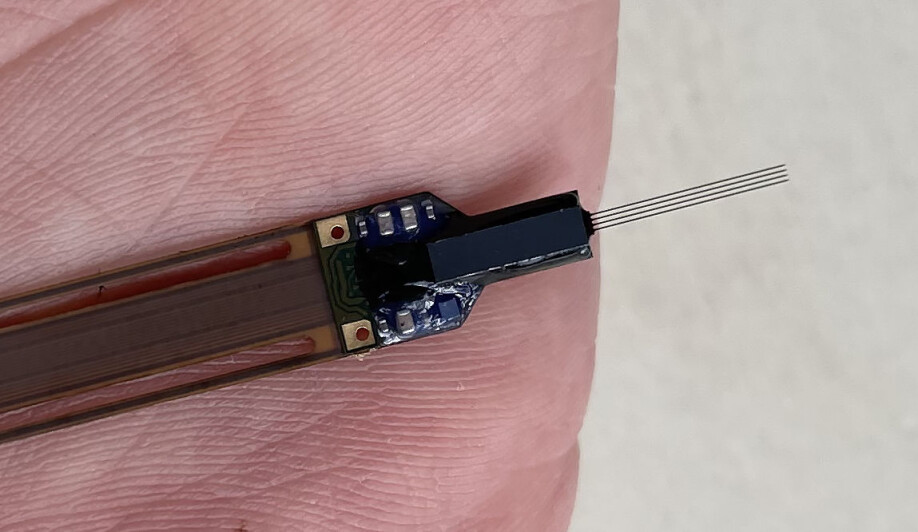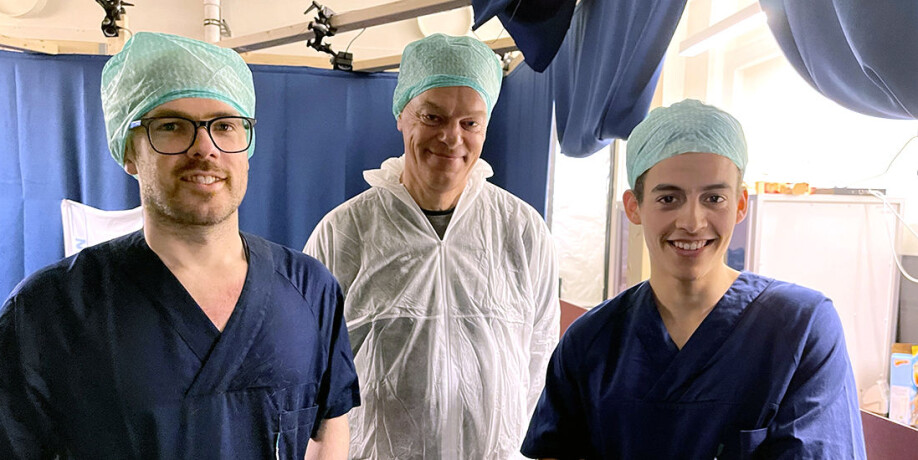THIS ARTICLE/PRESS RELEASE IS PAID FOR AND PRESENTED BY NTNU Norwegian University of Science and Technology - read more
This video is made by Kavli Communication.
Tomorrow’s research technology co-developed at Kavli Institute for Systems Neuroscience
Nobel laureate and Kavli Institute for Systems Neuroscience founding director and professor Edvard Moser says a new technology “opens doors to experiments we could only dream about 5 years ago.” The technology in question is called Neuropixels 2.0, a new favourite in the neuroscientists’ toolbox.
Neuropixels 2.0 is a tiny brain probe with several rows of even tinier microphones.
These teeny weeny microphones can listen in on conversations between thousands of brain cells across a brain area. What they actually record, is the very neural conversations from which our intellectual abilities like learning and memory arise.

Neuropixels 2.0 can listen to the same neurons across timescales from milliseconds up to months! At only 1/3 the size of its predecessor, it is tiny enough to be carried on the head of a freely moving mouse.
Norwegian researchers Richard Gardner, Edvard Moser and Abraham Zelalem Vollan from the Kavli Institute for Systems Neuroscience in Trondheim took part in the international joint project.
“The development of this neuroscience tool shows the value of collaborating across borders and disciplines,” says Moser.

An article describing the new tool has just been published in Science magazine.
Reference:
Nicholas A. Steinmetz et.al.: Neuropixels 2.0: A miniaturized high-density probe for stable, long-term brain recordings. Science, 2021. (Summary)
See more content from NTNU:
-
Why is nothing being done about the destruction of nature?“We hand over the data, but then it stops there"
-
Researchers now know more about why quick clay is so unstable
-
Many mothers do not show up for postnatal check-ups
-
This woman's grave from the Viking Age excites archaeologists
-
The EU recommended a new method for making smoked salmon. But what did Norwegians think about this?
-
Ragnhild is the first to receive new cancer treatment: "I hope I can live a little longer"





































